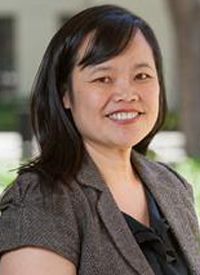Breast Cancer Incidence Has Increased for Some Asian-American Groups
Thought the incidence of breast cancer has decreased in many US racial/ethnic populations, the rate has increased in the Asian-American population.
Scarlett Lin Gomez, PhD, MPH

Scarlett Lin Gomez, PhD, MPH
In most US racial/ethnic populations, breast cancer incidence has either remained stable or declined over the past 15 years. In the Asian-American population, however, breast cancer incidence has been increasing steadily, as reported in a recent study done by the Cancer Prevention Institute of California (CPIC).
Asian-Americans comprise populations from 30 countries, which all have differing migration patterns, socioeconomic status, health behaviors and culture. Each of these characteristics contributes differences in disease incidence. This study is the first to examine subtype-specific incidence patterns in Asian-American ethnicities.
All Asian-American groups, with the exception of Japanese, experienced an overall incidence increase. The largest increase was observed among Koreans, South Asians, and Southeast Asians. Rates increased for distant stage disease among Filipinas.
To understand the increase in breast cancer incidence, researchers at CPIC studied the cancer trends by age and stage among women from 7 Asian-American ethnic groups in California, between 1988 and 2013. Those ethnicities were Chinese, Japanese, Korean, Filipino, Vietnamese, South Asians (Asian Indians and Pakistanis), and Southeast Asians (Cambodians, Laotians, Hmong, and Thai).
Using the California Cancer Registry, which is the largest in the United States and has the most substantial population of Asian Americans, the researchers found 548,259 new cases of invasive breast cancer. Of those cases, 383,478 were non-Hispanic white women, and 45,721 were Asian-American women.
Over the 25-year period, breast cancer incidence increased significantly in all Asian-American ethnicities, aside from Japanese. The annual percentage increase for all Asian-American women from 1988 to 1998 was 2.4%, compared with 0.8% for non-Hispanic white women. From 1998 to 2013, rates increased by 0.6% in all Asian-American women, whereas the rate fluctuated for non-Hispanic white women during the same period.
In the Asian-American population, the largest increase was seen in Koreans from 1988 to 2006 (4.7%) and Southeast Asians from 1988 to 2013 (2.5%). For women over the age of 50, rates increased across all Asian-American ethnic groups. In women younger than 50, increases occurred for Vietnamese and other Southeast Asian groups.
Also, although all ethnic/racial groups had the lowest rates for the HR-negative/HER2-positive subtype, those rates were 20% higher in Asian-American women than non-Hispanic white women.
The patterns discovered in this study, “warrant additional attention to public health prioritization to target disparities in access to care, as well as further research in identifying relevant breast cancer risk factors for specific breast cancer subtypes,” lead researcher Scarlett Lin Gomez, PhD, MPH, said in a statement. “In particular, studies should investigate risk factors, perhaps early-life exposures, underlying the higher rates of breast cancer among young Filipino and Japanese women, with attention to possible genetic susceptibility.”
Authors also suggest a need for higher rates of mammography screening in these populations due to the increasing trends of late stage disease, and better understanding of the rates of certain subtypes.
Gomez SL, Von Behren J, McKinley, et al. Breast cancer in Asian Americans in California, 1988-2013: increasing incidence trends and recent data on breast cancer subtypes [published online April 1, 2017]. Breast Cancer Res Treat. doi: 10.1007/s10549-017-4229-1
Nurse Practitioners Weigh in on Data From the San Antonio Breast Cancer Symposium
January 16th 2023Loyda Braithwaite, MSN, RN, AGPCNP-BC, AOCNP; and Jamie Carroll, APRN, CNP, MSN, highlight presentations from the 2022 San Antonio Breast Cancer Symposium that will influence oncology nursing practice.


